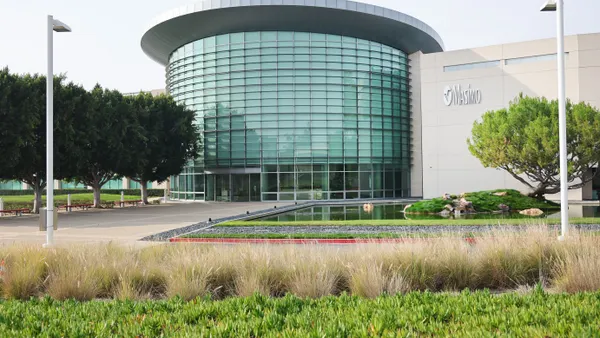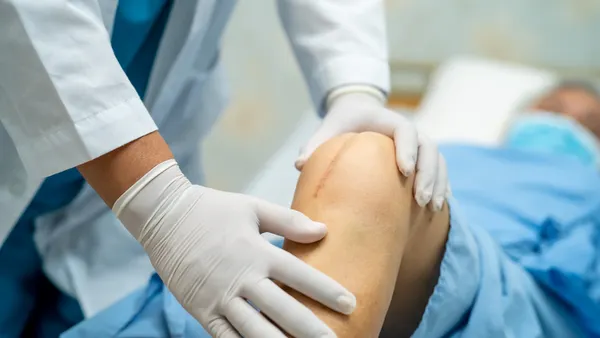Johnson & Johnson’s medtech leader said Wednesday that the company is now working with the Food and Drug Administration about safety risks tied to its Varipulse pulsed field ablation device.
Tim Schmid, J&J’s worldwide chairman of medtech, used the earnings call to update investors on the company’s recent pause of Varipulse cases in the U.S. due to reports of four “neurovascular events.” Schmid had little additional information to offer, however, citing J&J’s coordination with the FDA.
The company is working to identify the cause of the four reported events. J&J will give updates on the pause when there is more information to share, Schmid added.
“While disappointing, this is an easy decision for us,” Schmid told investors, stressing the importance of patient safety. Schmid and CFO Joe Wolk emphasized that the pause only affects U.S. cases, and international Varipulse cases continue.
J&J’s Varipulse pause, while only in the U.S., limits the company in a race for market share in the rapidly growing PFA space. PFA is a new treatment for atrial fibrillation, a type of irregular heartbeat, and is already replacing standard methods of cryoablation and radiofrequency ablation.
Boston Scientific and Medtronic devices are available in the U.S., and both companies have reported success for their respective systems. J&J was already trailing the companies to the U.S. market, and the pause has placed them further behind.
Needham analyst Mike Matson, when the U.S. pause was announced, wrote that even if sales resume, “we believe that the product is now likely to be tainted and that electrophysiologists are likely to be wary of using it.”
The PFA stumble comes after a successful year for J&J’s cardiovascular portfolio. The business group — a focus for J&J over the past several years that has led to more than $30 billion in acquisitions — brought in $7.71 billion in 2024, representing 21.4% year-over-year growth.
Abiomed and Shockwave Medical, a pair of recently acquired companies, combined for more than $2 billion in sales last year.
Shockwave, which J&J bought for $13.1 billion in 2024, accounted for $564 million of revenue last year. Shockwave develops intravascular lithotripsy devices, which break up calcium deposits in coronary arteries using sound pressure waves.
Schmid was bullish on the segment’s benefit to J&J overall.
“We’re confident that while certainly there's a lot of excitement around this category, we have at least a five- to eight-year first mover advantage,” Schmid said.
2025 outlook
J&J expects a normalized procedure environment in 2025. Schmid said the company had anticipated a boost from COVID-19 backlogs in the first half of last year, particularly for orthopedic procedures. That benefit is now over.
“We believe that for the most part, around the world, procedures have normalized to pre-COVID levels,” Schmid said.
The company did not provide a financial outlook for the medtech unit on the call. In December 2023, executives said they expect the medtech business to grow at a range of from 5% to 7% between 2022 and 2027.













